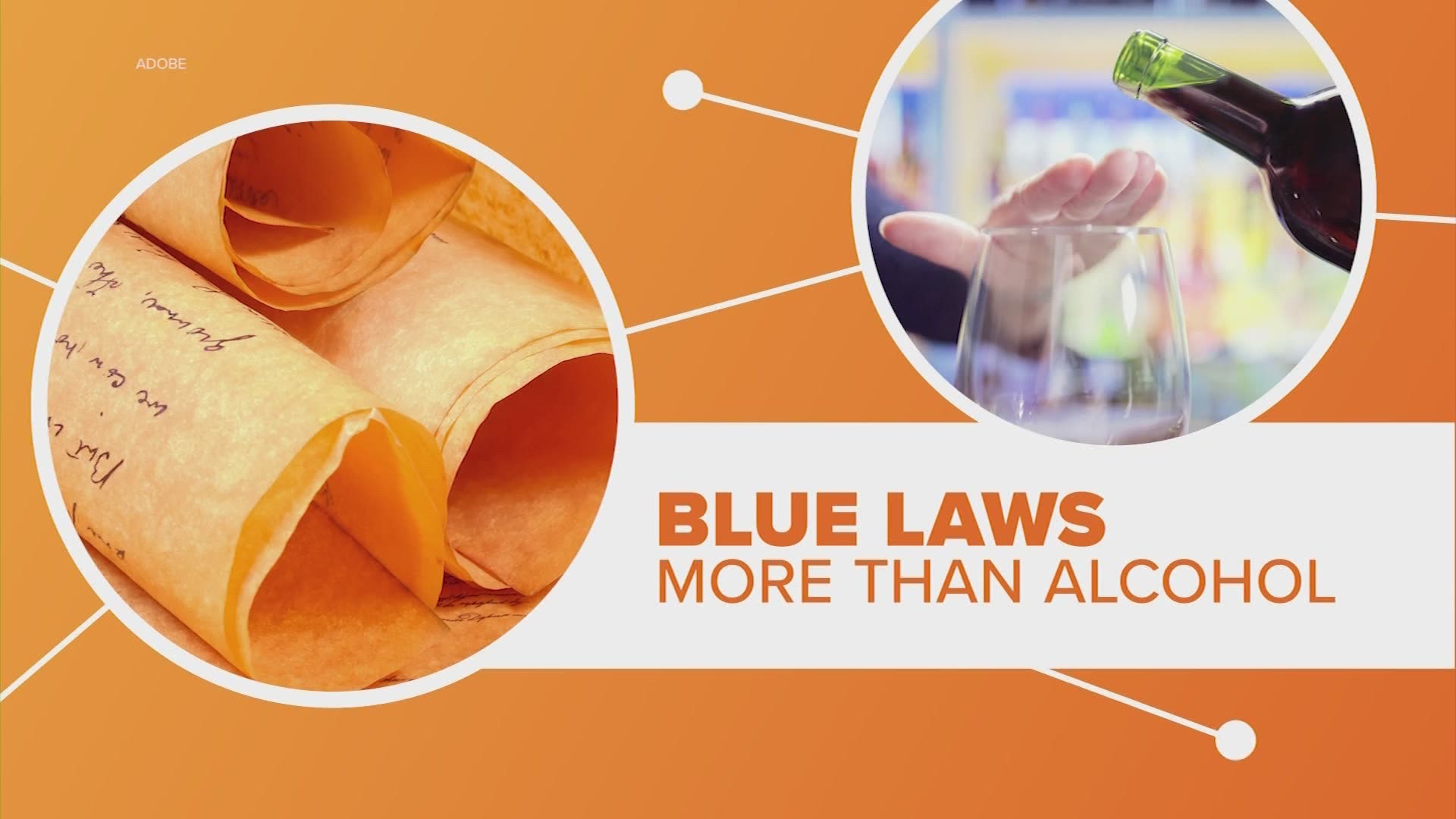Most of us think the term “blue laws” refers to restrictions on selling alcohol, especially on Sundays. And although it does, it once involved a lot more than just alcohol.
Let's connect the dots.
First things first, most historians now think the urban legend that "blue laws" were named after the blue paper New Haven, Connecticut printed its restrictive laws on is just that -- an urban legend. But, no evidence has been found to support that.
The leading theory is the name came from the fact the word "blue" was 18th-century slang for someone who was prudish.
"Blue Laws" came to America with the first colonists and they restricted almost every activity on Sunday, the sabbath. They outlawed everything from hunting on Sunday to selling any type of goods, to displays of affection.
Some colonies prohibited dancing and even laughing too loud. They also made attending church mandatory.
While blue laws became less restrictive in the 20th century, some stuck around.
In Pennsylvania, it was illegal to play professional sports on a Sunday into the 30s. In Texas, it was illegal to sell housewares like pots and pans on a Sunday until 1985. And in several states, it is still illegal for car dealerships to do business on a Sunday.
But the most successful and longest-lasting blue laws in the U.S. are still the ones restricting the sale of alcohol.
ALSO POPULAR ON KHOU.COM

